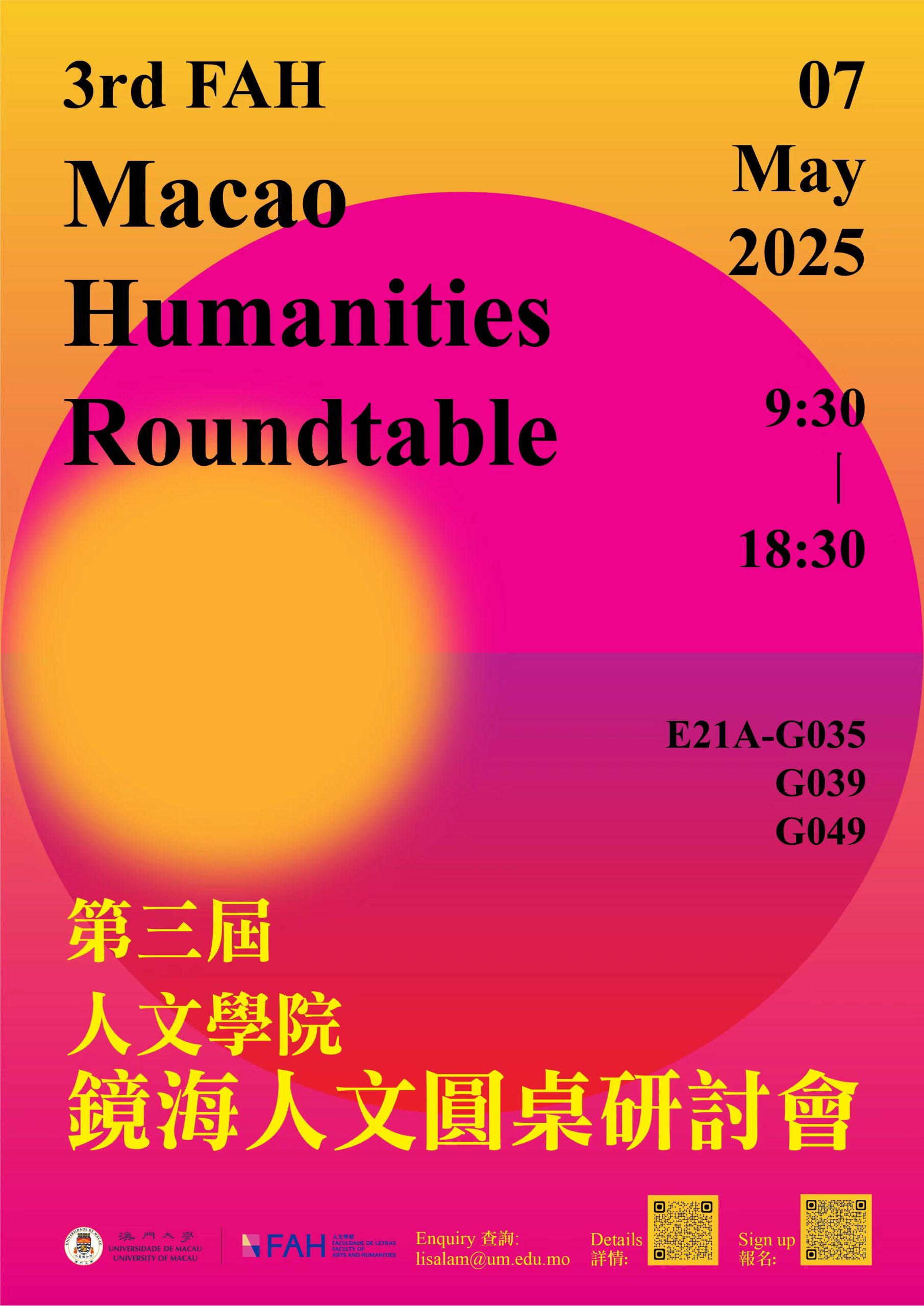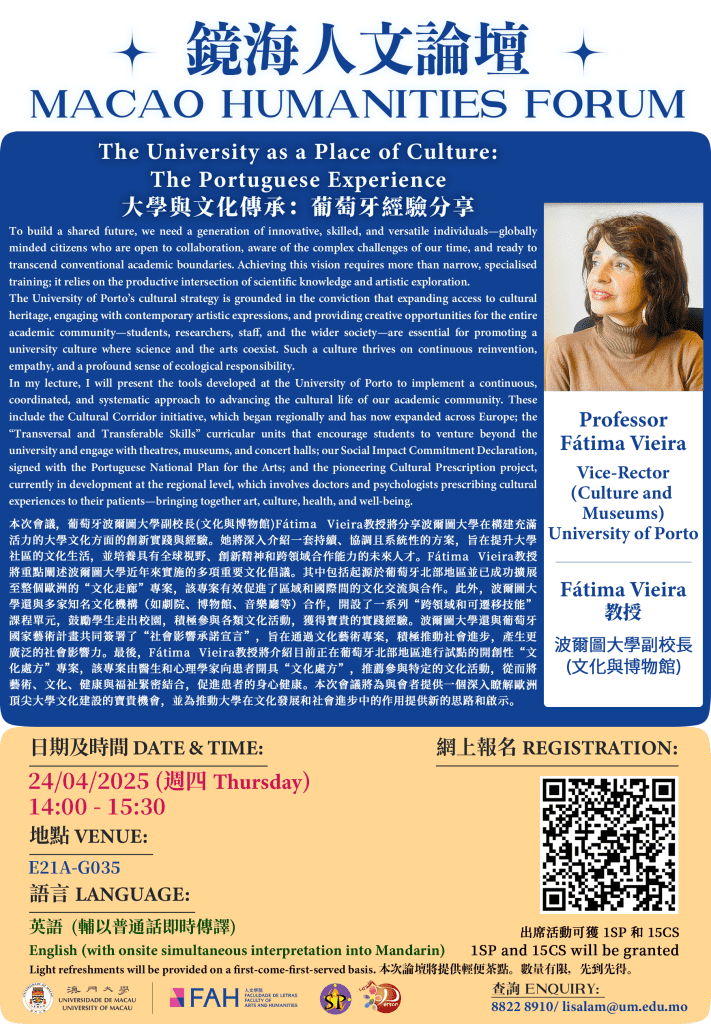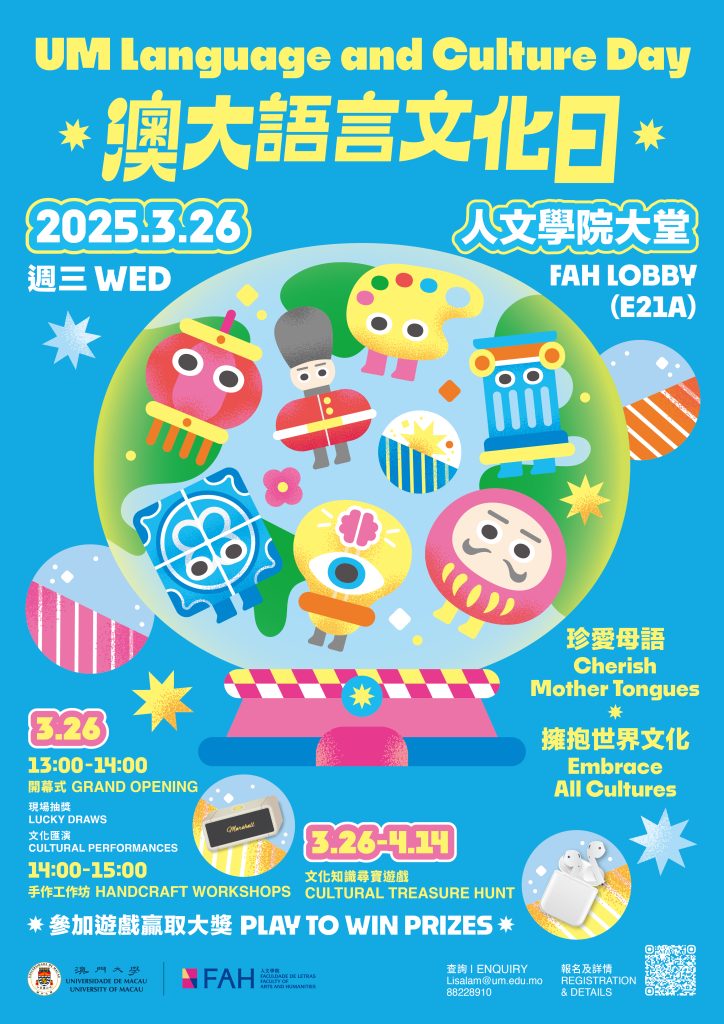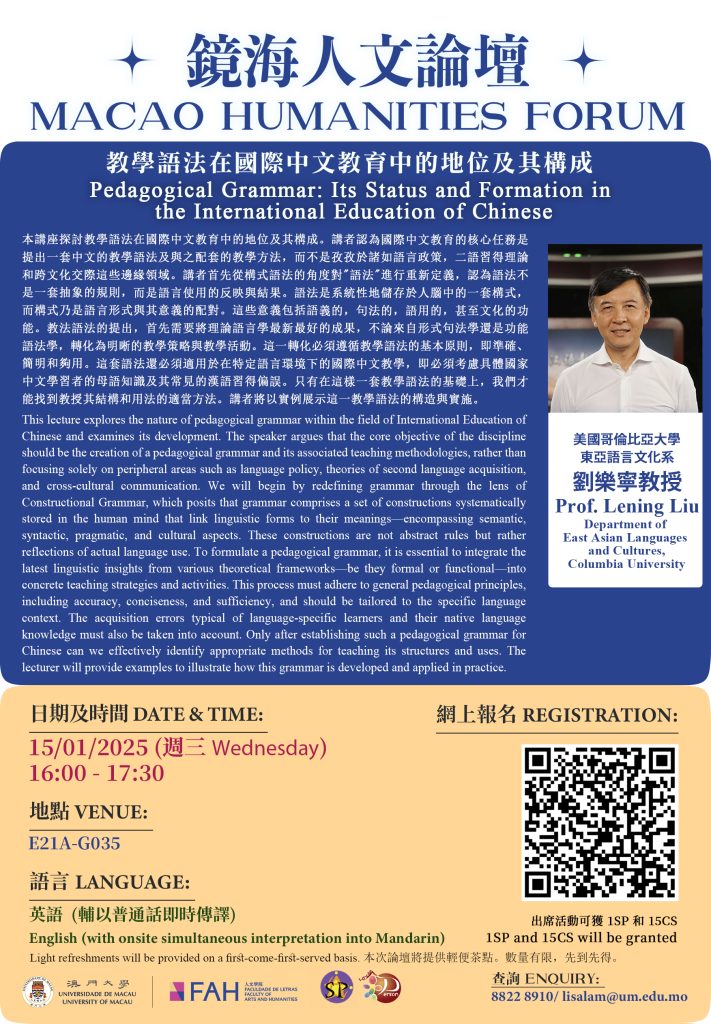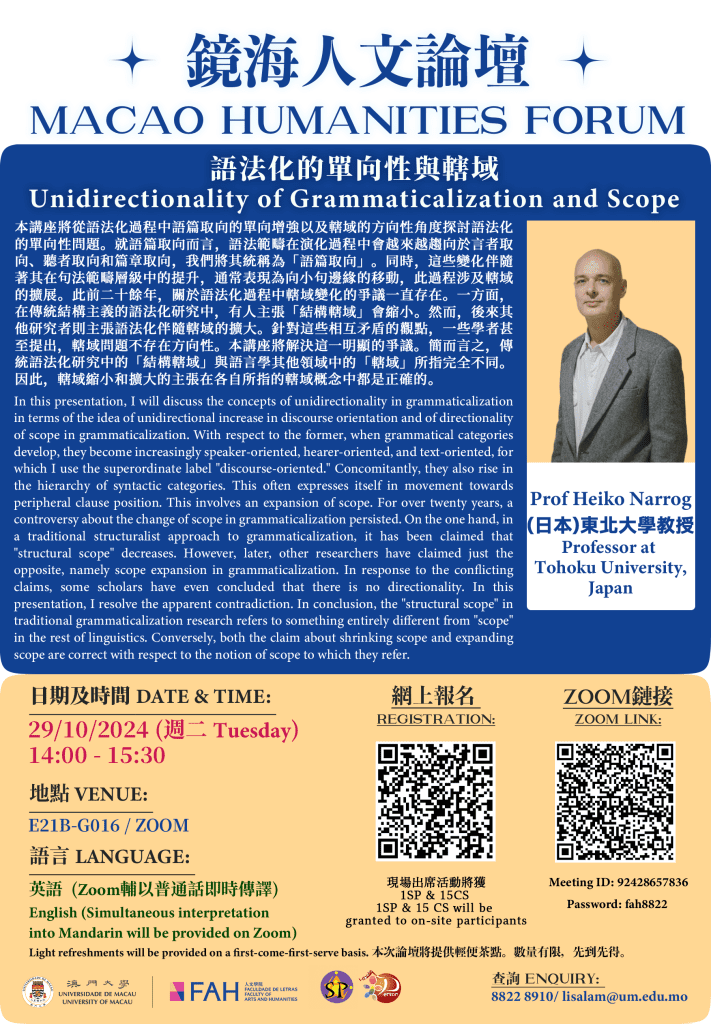【FAH】Invitation to the 3rd FAH Macao Humanities Roundtable (2025/05/07)
lisalam2025-05-08T00:00:47+08:00The 3rd FAH Macao Humanities Roundtable will be held on 7 May 2025. As one of the major research-oriented events of the FAH, the Roundtable aims to foster collegiality in the faculty and serves as an excellent platform for FAH colleagues and Ph.D. students to share and showcase their research with UM members. Please note that there will be parallel sessions in E21A-G035 (the auditorium), E21A-G039 and E21A-G049 (the SI Lab). The 37 presentations have been grouped into 12 sessions, as shown in the attached programme. The Roundtable will start at 9:30 in E21A-G035. All members of the UM community are cordially invited to this splendid event.
澳門大學人文學院將於2025年5月7日(週三)舉行“第三屆鏡海人文圓桌研討會”。該圓桌研討會旨在促進學院師生的合作與聯繫,通過此次良好平臺讓人文學院的同事與博士生同澳大師生分享他們的研究成果。此次圓桌會將有37場精彩演講分成12組,並分別於E21A-G035、E21A-G039及E21A-G049 進行分組報告,詳情請參閱附件的活動日程。研討會將於上午9時30分在E21A-G035正式開始。誠摯邀請全體澳大成員參與本次圓桌研討會。
Details of the event are as follows 活動內容如下:
Date 日期: 07/05/2025 (Wed 週三)
Venue 地點: E21A-G035, E21A-G039 and E21A-G049 (SI LAB)
Time 時間: 9:30 – 18:30*
Programme 日程表: Roundtable Programme
Registration 報名:https://forms.gle/AcoWaJ7G6mdNKocP8
Abstract摘要:Roundtable Abstract
- Session 分組1 (Chinese Literature 中國文學)︱E21A-G035︱9:30 – 11:30
- Session 分組2 (Linguistics 語言學)︱E21A-G049︱9:30 – 11:30
- Session 分組3 (Japanese Studies 日本研究)︱E21A-G039︱9:30 – 11:30
- Session 分組4 (Chinese Literature 中國文學)︱E21A-G035︱11:30 – 12:30
- Session 分組5 (Linguistics 語言學)︱E21A-G049︱11:30 – 13:00
- Session 分組6 (Art and Design 藝術與設計)︱E21A-G039︱11:30 – 12:30
- Session 分組7 (Linguistics 語言學)︱E21A-G035︱14:30 – 16:30
- Session 分組8 (English Literature 英文文學)︱E21A-G049︱14:30 – 17:00
- Session 分組9 (Philosophy 哲學)︱E21A-G039︱14:30 – 16:00
- Session 分組10 (Linguistics 語言學)︱E21A-G035︱17:00 – 18:30
- Session 分組11 (History 歷史)︱E21A-G049︱17:00 – 18:30
- Session 分組12 (Portuguese Linguistics 葡語語言學)︱E21A-G039︱17:00 – 18:30
*Tea breaks are available for all participants, while lunch is provided for presenters. 現場將為所有參與者提供輕便茶點(數量有限,先到先得);午膳則專為演講者安排。

